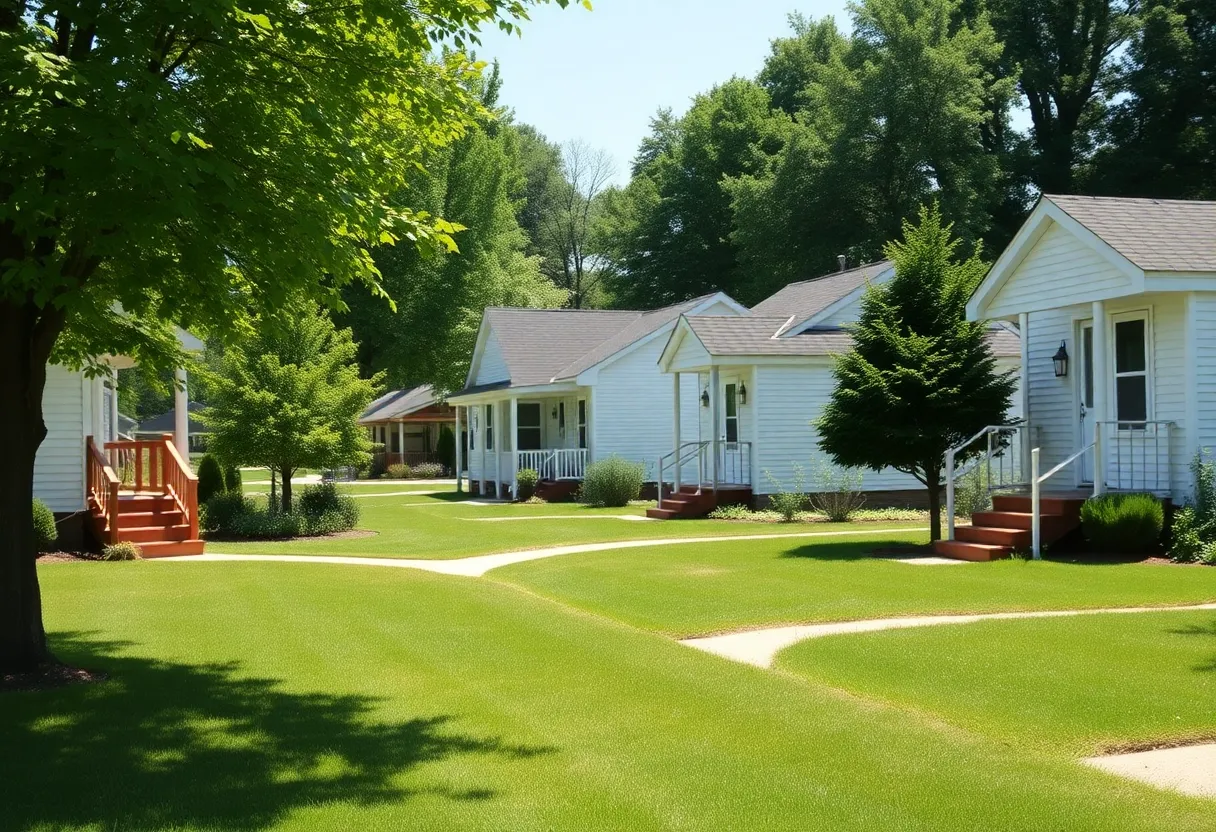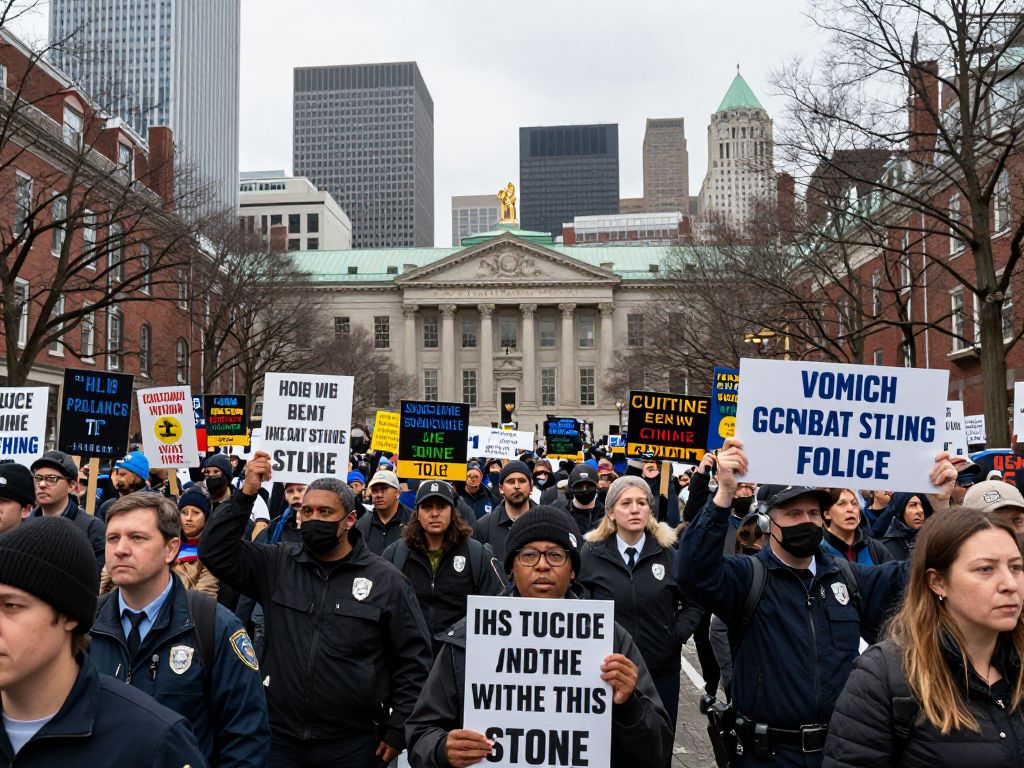News Summary
Massachusetts’ initiative to create starter-home zoning districts faces delays, hindering efforts to address the state’s rising housing crisis. This proposal, intended to allow smaller homes on limited lots, is crucial for aiding first-time buyers and young professionals. With increasing housing costs and occupancy issues, developers and officials stress the importance of advancing these regulations to ease the burden on residents. As communities seek innovative housing solutions, the wait for critical zoning regulations continues amidst urgent calls for action.
Massachusetts Housing Crisis: Starter-Home Zoning Delayed
In the lovely state of Massachusetts, a notable initiative aimed at resolving its growing housing crisis has hit the brakes. The much-discussed concept of starter-home zoning districts, first introduced in an economic development bill back in 2022, is yet to see the light of day, leaving many to wonder what’s holding things up.
What’s the Big Idea?
So, what exactly are starter-home zoning districts? Well, this zoning proposal would allow the construction of smaller single-family homes on lots not exceeding a quarter of an acre. Imagine cozy little homes that are just the right size for first-time buyers or young professionals looking for a place of their own in a state where housing has become increasingly unaffordable.
Despite some promising prospects, this initiative has hit a snag, as regulations from the Executive Office of Housing and Livable Communities remain absent more than two years later. State officials and business leaders have highlighted the urgent need for an “all of the above” approach to tackle the ongoing housing shortages and reduce living costs statewide.
Why is This Important?
The ability to create starter-home zoning is more than just a buzzword; it plays a crucial role in keeping young professionals in the state. Currently, the occupancy rates indicate that many empty-nesters are not moving out of their spacious three-bedroom homes, leaving less than half of the homes suitable for families with children up for grabs. This lack of movement exacerbates the already pressing housing crisis, effectively bottlenecking the market.
Developers have voiced their enthusiasm for the starter-home zoning initiative, explaining how it provides the necessary financial incentives to build homes smaller than 1,850 square feet—those priced below $1 million are becoming an enigma within the state. With affordability at the forefront, it’s troubling that the initiative has not gained traction.
Community Choices and Broader Strategies
Unlike the mandatory MBTA Communities Act, which requires communities to comply, the starter-home zoning districts are optional. Communities can decide if they want to adopt them to gain access to additional funding for housing projects. This flexibility could potentially be a game changer, allowing towns to adapt and address their unique housing needs.
Efforts to improve the state’s housing situation aren’t limited to starter homes alone. They’re part of a comprehensive strategy that also focuses on accessory dwelling units and public housing investments, ultimately striving to create a whopping 222,000 new homes.
Yet, despite governmental assurances over the past two years, regulations for starter-home zoning are still pending. Meanwhile, towns like Billerica are contemplating zoning bylaws to promote starter homes, indicating a local response to increasing housing demands.
The Push for More Housing
The situation in Cambridge, which recently relaxed restrictions on multi-story apartment buildings, signals a broader trend of community efforts to ease housing regulations. With the average rent reaching around $3,375—well above the national average—it’s increasingly clear that more housing must be developed to meet the population’s needs.
The Affordable Homes Act aims to push forth certain housing provisions to support the development of affordable housing, even overriding local zoning bylaws when necessary. Massachusetts has introduced multiple statutes designed to lower barriers to the construction of affordable accommodations, including the Comprehensive Permit Act and the Housing Choice Act.
However, challenges remain for developers, with significant land acquisition costs and complicated permitting processes inflating the expenses associated with constructing low-cost housing. A pilot project on Westminster Ave., targeting the creation of 12 affordable units at an average sale price of below $600,000, demonstrates what’s possible but also highlights the hurdles that still lie ahead.
Looking Forward
To address the critical need for affordable housing, cities are implementing innovative strategies such as the Compact Living Pilot, which explores micro units as a potential solution. The aim is to produce more affordable housing options that could ease the burden many residents are currently experiencing.
As Massachusetts continues to grapple with its housing crisis, the delay in starting the proposed starter-home zoning districts serves as a reminder of both the urgency and complexity of the situation. With communities advocating for more innovative solutions, the hope is that the state can soon roll out the regulations necessary to support its residents in their quest for housing.
Deeper Dive: News & Info About This Topic
- Lowell Sun: Billerica Select Board Floats 40Y Starter Home Zoning District
- Bloomberg: Cambridge YIMBYs Score a Big Zoning Reform in Harvard’s Backyard
- The Berkshire Edge: Peter Most Statutory YIMBYism
- Bay State Banner: City’s Compact Living Pilot Helps Developers Tackle Housing Crisis
- Boston Globe: Housing MBTA Communities Bathrooms Saga Partners
- Wikipedia: Housing in the United States
- Google Search: Massachusetts Housing Crisis
- Google Scholar: Starter-Home Zoning
- Encyclopedia Britannica: Housing
- Google News: Affordable Housing Massachusetts

Author: STAFF HERE BOSTON WRITER
The BOSTON STAFF WRITER represents the experienced team at HEREBoston.com, your go-to source for actionable local news and information in Boston, Suffolk County, and beyond. Specializing in "news you can use," we cover essential topics like product reviews for personal and business needs, local business directories, politics, real estate trends, neighborhood insights, and state news affecting the area—with deep expertise drawn from years of dedicated reporting and strong community input, including local press releases and business updates. We deliver top reporting on high-value events such as Boston Marathon, Head of the Charles Regatta, and Boston Harborfest. Our coverage extends to key organizations like the Greater Boston Chamber of Commerce and Associated Industries of Massachusetts, plus leading businesses in finance, biotech, and insurance that power the local economy such as Fidelity Investments, Biogen, and Liberty Mutual Insurance. As part of the broader HERE network, we provide comprehensive, credible insights into Massachusetts's dynamic landscape.





